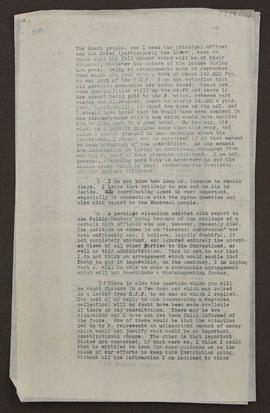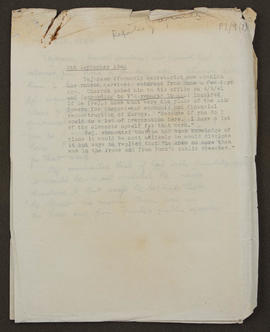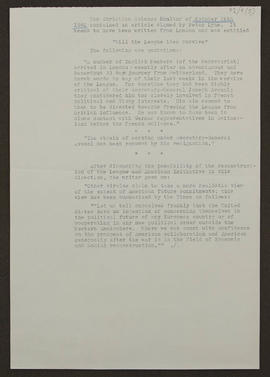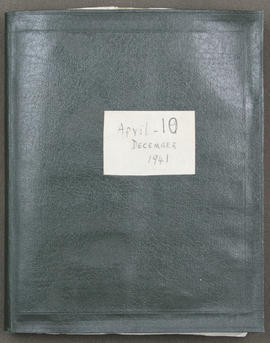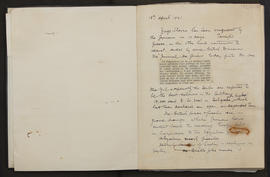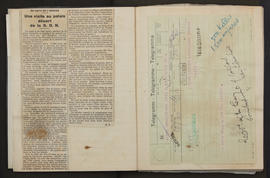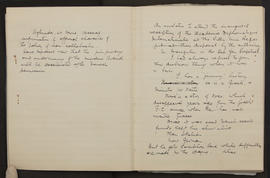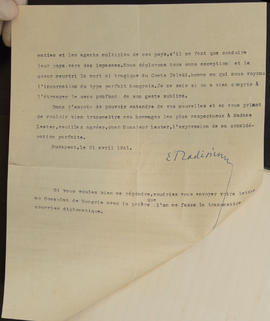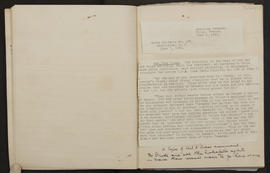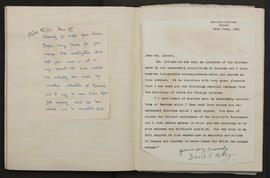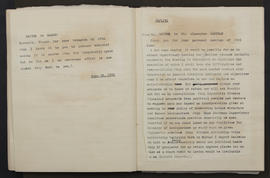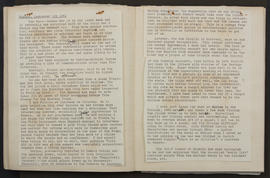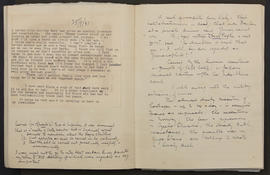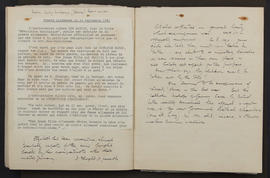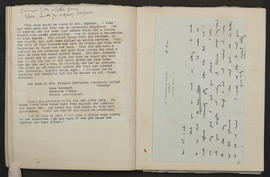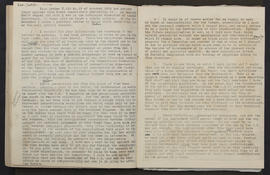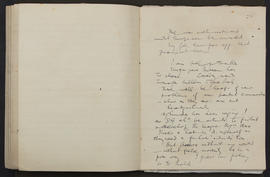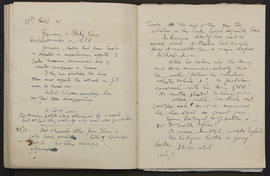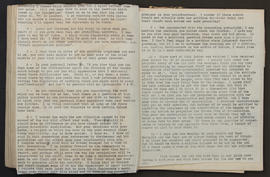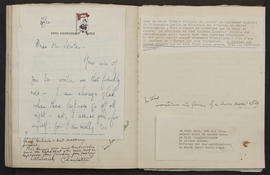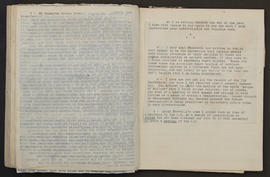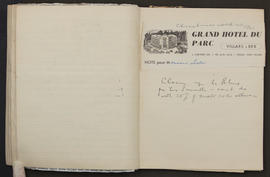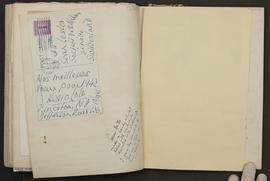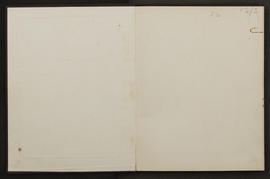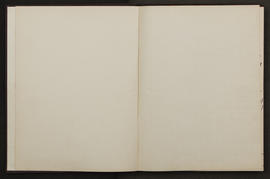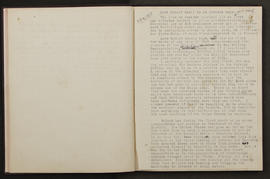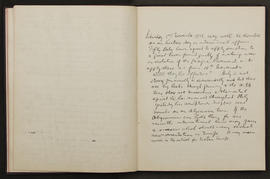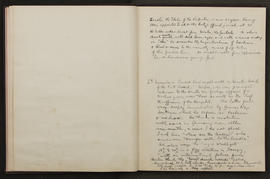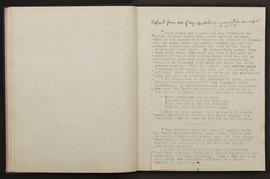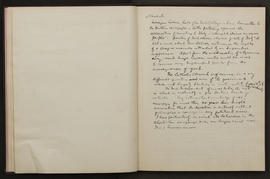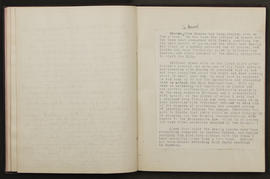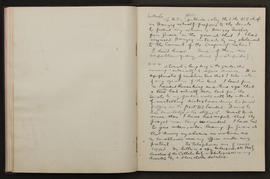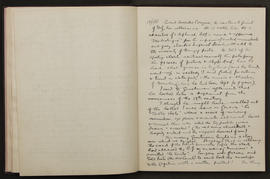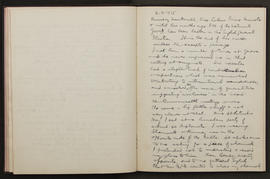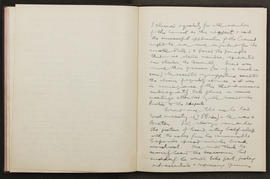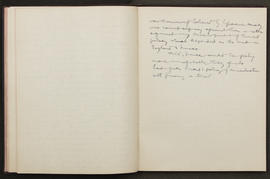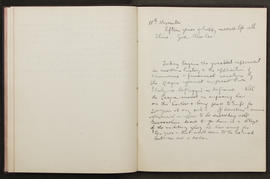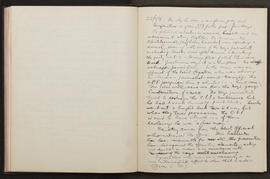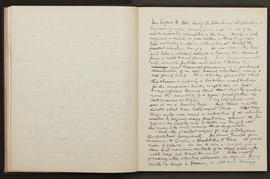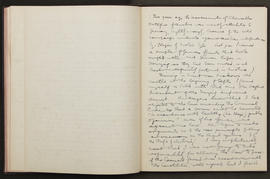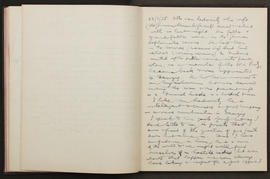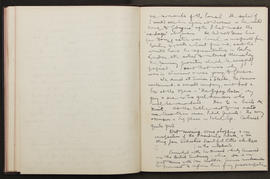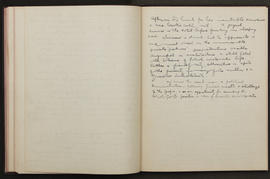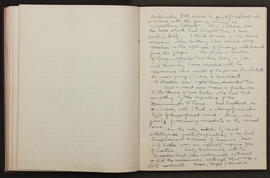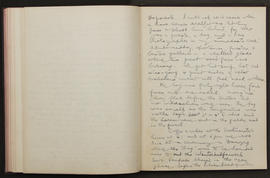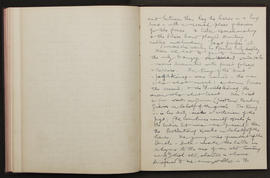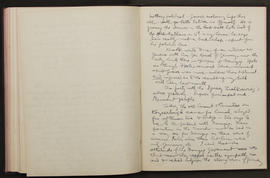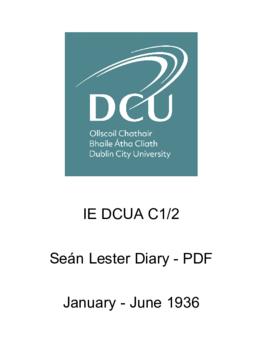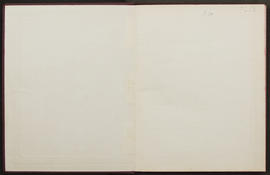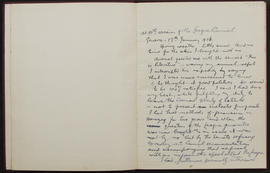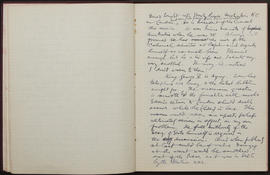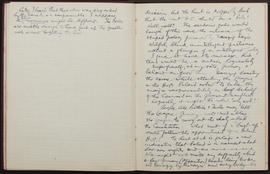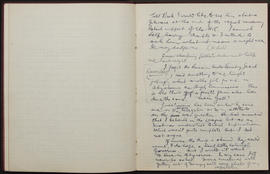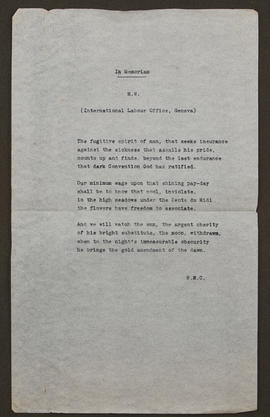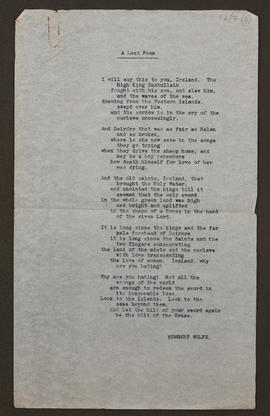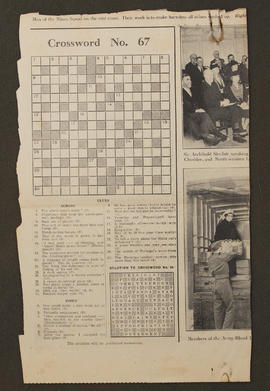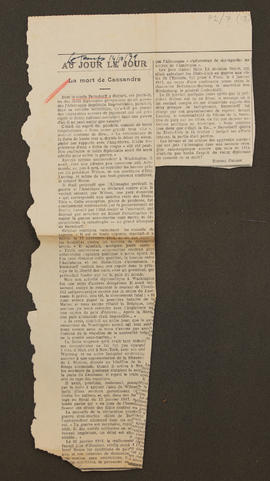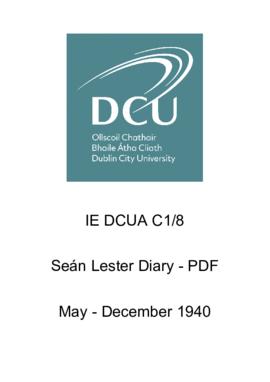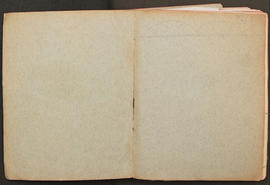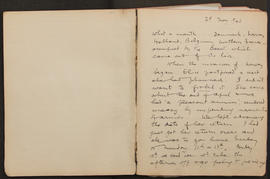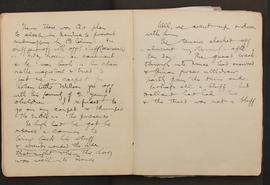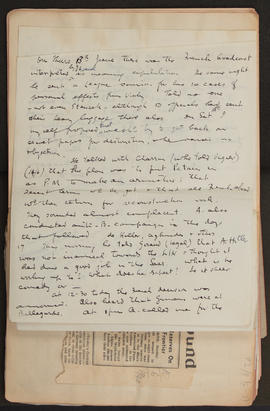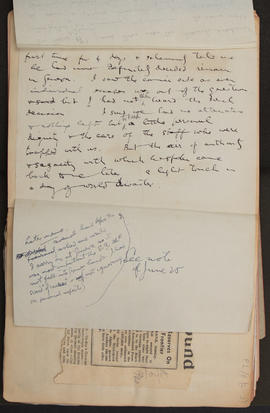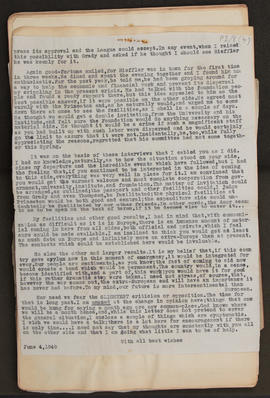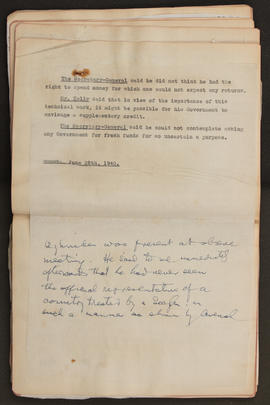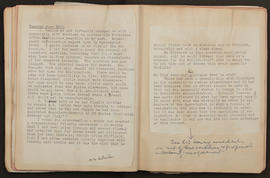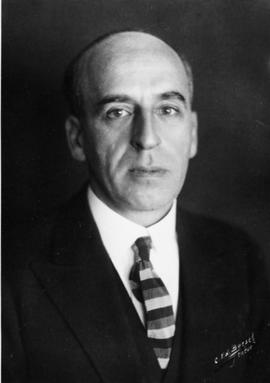Showing 1176 results
Archival description1073 results with digital objects Show results with digital objects
Letter from [?René Massigli], Consulate General of France in Geneva, Switzerland to Seán Lester
- IE DCUA C1/9/1/3
- Part
- 12 March 1941
Part of Seán Lester Collection
- IE DCUA C1/9/1/3/c1_9_1_3_0004
- Part
- 12 March 1941
Part of Seán Lester Collection
- IE DCUA C1/9/1/4/c1_9_1_4_0001
- Part
- 26 November 1940
Part of Seán Lester Collection
Telegram from Hambro Phillips Malik to Seán Lester
- IE DCUA C1/9/1/6
- Part
- 24 March 1941
Part of Seán Lester Collection
Letter from Carola Giedion-Welcker to Seán Lester
- IE DCUA C1/9/1/8
- Part
- 18 January 1941
Part of Seán Lester Collection
Letter from Seán Lester to Carl Hambro, Head of the Supervisory Commission of the League, p0002
- IE DCUA C1/9/1/9/c1_9_1_9_0002
- Part
- 12 February 1941
Part of Seán Lester Collection
Diary: October 1935 - January 1936, p0002
- IE DCUA C1/1/c1_1_0002
- Part
- October 1935- January 1936
Part of Seán Lester Collection
Diary: October 1935 - January 1936, p0003
- IE DCUA C1/1/c1_1_0003
- Part
- Diary: October 1935 - January 1936
Part of Seán Lester Collection
Diary: October 1935 - January 1936, p0011
- IE DCUA C1/1/c1_1_0011
- Part
- October 1935-January 1936
Part of Seán Lester Collection
Diary: October 1935 - January 1936, p0015
- IE DCUA C1/1/c1_1_0015
- Part
- October 1935-January 1936
Part of Seán Lester Collection
Diary: October 1935 - January 1936, p0018
- IE DCUA C1/1/c1_1_0018
- Part
- October 1935-January 1936
Part of Seán Lester Collection
Diary: October 1935 - January 1936, p0019
- IE DCUA C1/1/c1_1_0019
- Part
- October 1935-January 1936
Part of Seán Lester Collection
Diary: October 1935 - January 1936, p0020
- IE DCUA C1/1/c1_1_0020
- Part
- October 1935-January 1936
Part of Seán Lester Collection
Diary: October 1935 - January 1936, p0022
- IE DCUA C1/1/c1_1_0022
- Part
- October 1935-January 1936
Part of Seán Lester Collection
Diary: October 1935 - January 1936, p0023
- IE DCUA C1/1/c1_1_0023
- Part
- October 1935-January 1936
Part of Seán Lester Collection
Diary: October 1935 - January 1936, p0024
- IE DCUA C1/1/c1_1_0024
- Part
- October 1935-January 1936
Part of Seán Lester Collection
Diary: October 1935 - January 1936, p0027
- IE DCUA C1/1/c1_1_0027
- Part
- October 1935-January 1936
Part of Seán Lester Collection
Diary: October 1935 - January 1936, p0030
- IE DCUA C1/1/c1_1_0030
- Part
- October 1935-January 1936
Part of Seán Lester Collection
Diary: October 1935 - January 1936, p0034
- IE DCUA C1/1/c1_1_0034
- Part
- October 1935-January 1936
Part of Seán Lester Collection
Diary: October 1935 - January 1936, p0035
- IE DCUA C1/1/c1_1_0035
- Part
- October 1935-January 1936
Part of Seán Lester Collection
Diary: October 1935 - January 1936, p0042
- IE DCUA C1/1/c1_1_0042
- Part
- October 1935-January 1936
Part of Seán Lester Collection
Diary: October 1935 - January 1936, p0043
- IE DCUA C1/1/c1_1_0043
- Part
- October 1935-January 1936
Part of Seán Lester Collection
Diary: October 1935 - January 1936, p0044
- IE DCUA C1/1/c1_1_0044
- Part
- October 1935-January 1936
Part of Seán Lester Collection
Diary: October 1935 - January 1936, p0046
- IE DCUA C1/1/c1_1_0046
- Part
- October 1935-January 1936
Part of Seán Lester Collection
Diary: October 1935 - January 1936, p0053
- IE DCUA C1/1/c1_1_0053
- Part
- October 1935-January 1936
Part of Seán Lester Collection
Diary: October 1935 - January 1936, p0054
- IE DCUA C1/1/c1_1_0054
- Part
- October 1935-January 1936
Part of Seán Lester Collection
Diary: October 1935 - January 1936, p0062
- IE DCUA C1/1/c1_1_0062
- Part
- October 1935-January 1936
Part of Seán Lester Collection
Diary: October 1935 - January 1936, p0075
- IE DCUA C1/1/c1_1_0075
- Part
- 3 January 1936
Part of Seán Lester Collection
Diary: October 1935 - January 1936, p0076
- IE DCUA C1/1/c1_1_0076
- Part
- October 1935-January 1936
Part of Seán Lester Collection
Diary: October 1935 - January 1936, p0080
- IE DCUA C1/1/c1_1_0080
- Part
- October 1935-January 1936
Part of Seán Lester Collection
- IE DCUA C1/2
- Item
- 16 January 1936-26 June 1936
Part of Seán Lester Collection
Handwritten and typed diary entries relating to Lester's time as High Commissioner of the League of Nations in Danzig. Includes telegram from Bishop Edward O'Rourke, Catholic Bishop of Danzig, to Lester dated 17 March 1936 with best wishes for St Patrick's Day, and letter from the Danzig Police President dated 21 March 1936, inviting Lester to the opening of the Danzig Trophy Show.
- January-June 1936
Part of Seán Lester Collection
Diary: January - June 1936, p0002
- IE DCUA C1/2/c1_2_0002
- Part
- January-June 1936
Part of Seán Lester Collection
Diary: January - June 1936, p0003
- IE DCUA C1/2/c1_2_0003
- Part
- January-June 1936
Part of Seán Lester Collection
Diary: January - June 1936, p0008
- IE DCUA C1/2/c1_2_0008
- Part
- January-June 1936
Part of Seán Lester Collection
Diary: January - June 1936, p0012
- IE DCUA C1/2/c1_2_0012
- Part
- January-June 1936
Part of Seán Lester Collection
Diary: January - June 1936, p0019
- IE DCUA C1/2/c1_2_0019
- Part
- January-June 1936
Part of Seán Lester Collection
Poetry relating to the death of Humbert Wolfe, p0003
- IE DCUA C1/7/4/c1_7_4_0003
- Part
- January 1940
Part of Seán Lester Collection
Poetry relating to the death of Humbert Wolfe, p0004
- IE DCUA C1/7/4/c1_7_4_0003
- Part
- January 1940
Part of Seán Lester Collection
Newspaper cutting from Diary: August 1939 - April 1940, p0002
- IE DCUA C1/7/5/c1_7_5_0002
- Part
- August 1939-April 1940
Part of Seán Lester Collection
Newspaper cutting from Diary: August 1939 - April 1940, p0003
- IE DCUA C1/7/5/c1_7_5_0003
- Part
- August 1939-April 1940
Part of Seán Lester Collection
- IE DCUA C1/8
- Item
- 29 May 1940-2 December 1940
Part of Seán Lester Collection
Consists of handwritten and typed diary entries, letters, postcards and other documents. Topics include Lester's final months as Deputy Secretary General of the League of Nations; his assuming the role of Acting Secretary General following the resignation of Joseph Avenol on 31 August 1940; the dire state of the Secretariat finances, and a bus crash in August involving several League of Nations employees, including Alec [Alexander] Loveday, while travelling to Lisbon, Portugal, as part of the transfer of the Secretariat's technical services to Princeton, USA [a photograph of the crashed bus is included in diary C1/9].
Diary includes letters to Lester from: Alec Loveday, Director of the Economic, Financial, and Transit Department of the League of Nations; Seymour Jacklin, Treasurer of the League of Nations; Carl Hambro, Head of the Supervisory Commission of the League of Nations; Thamassis Aghnides, Director of the Disarmament Section of the League of Nations; Arthur Sweetser, League of Nations' Public Information Section; Hugh McKinnon Wood, Counsellor and Legal Adviser at the League of Nations; Laurence C Tombs, a former official in the Transit and Communications Section of the League of Nations; Edward Joseph Phelan, International Labour Organisation, and Carl Jacob Burckhardt, International Committee of the Red Cross [and previously, Lester's successor as League of Nations High Commissioner in Danzig]. Also includes newspaper cuttings and black and white passport photograph of an unidentified man.
- May -December 1940
Part of Seán Lester Collection
Diary: May - December 1940, p0002
- Part
Part of Seán Lester Collection
Diary: May - December 1940, p0004
- Part
Part of Seán Lester Collection
Diary: May - December 1940, p0008
- Part
Part of Seán Lester Collection
Diary: May - December 1940, p0010
- Part
Part of Seán Lester Collection
Diary: May - December 1940, p0011
- Part
Part of Seán Lester Collection
Diary: May - December 1940, p0015
- Part
Part of Seán Lester Collection
Diary: May - December 1940, p0023
- Part
Part of Seán Lester Collection
Diary: May - December 1940, p0026
- Part
Part of Seán Lester Collection
- IE DCUA C1
- Collection
- 1935-2003
The collection mainly consists of eleven diaries written by Seán Lester from 1935- 1942 when he was High Commissioner of the League of Nations in Danzig [Gdansk, Poland], then Deputy and subsequently General Secretary of the League of Nations in Geneva, Switzerland. Lester's diary entries and the numerous letters, telegrams and other documents included in the diaries give an invaluable insight into his work in the League of Nations, the momentous historical events that were taking place, and his personal thoughts and struggles during this period. The first diary opens with the following entry by Lester written in October 1935: 'So I've opened a diary at last, the odds are against a dozen entries.' In fact, Lester would go on to write hundreds of entries over the next few years, recording the background workings of the League 5 of Nations with accounts of meetings, public events, conversations with political leaders and diplomats, transcripts of telephone calls, copies of letters he sent, and many of the letters he received and pasted into the pages of the diaries. They provide an invaluable insight into some of the most significant historical events during this period, including the rise of the Nazis in Danzig, the increasing persecution of Jews, the failed attempts to appease Hitler in the run-up to war, and the eventual outbreak of the Second World War.
They also chart Lester's career in the League of Nations as it developed in tandem with these events: the increasing pressure and intimidation he faced as High Commissioner in Danzig from the Nazis as they undermined the authority of the League, his promotion in late 1936 to Deputy Secretary General in Geneva (essentially as a form of appeasement to the Nazis), and his assuming the role of Acting Secretary General of the League after Joseph Avenol left Geneva for Vichy France in 1940. The diaries also show his courage and determination to keep the League (albeit, only its basic functions) running throughout the course of the Second World War.
Details of Lester's personal life and struggles during this period are also recorded, particularly the torment and loneliness he felt being separated from his wife Elsie and three daughters Dorothy Mary, Ann and Patricia following their evacuation from Geneva to Ireland in 1940. Ireland is never far from his thoughts during the period, and the diaries feature numerous correspondence with Irish friends, accounts of brief trips home for Christmas and family holidays to Connemara in the years up to 1940, and reflections on Irish current affairs and political figures. One of the most notable entries in the diaries is Lester's extensive account of his meeting with James Joyce and his family in Geneva in December 1940. The Joyce family had fled their home in Paris the previous May and sought Lester's help in obtaining a visa for their daughter Lucia; the Nazis had refused to issue her with a visa and she remained in a mental health clinic in German-occupied France. A related letter from Joyce to Lester prior to this meeting is also included in the diaries, as is correspondence between Lester and members of the Joyce family and friends following the death of James Joyce in Zurich less than a month later.
The collection also includes a metal case in which Lester – fearing that the Nazis could invade Switzerland at any moment – placed his diaries before burying them next to a bench in the Palais des Nations, the headquarters of the League of Nations in Geneva. This may account for why the diary entries stop in 1942. Also included in the collection is an address book kept by Lester during the period of the diaries, and a television documentary about Lester written and presented by John Bowman which includes a segment on the diaries.
Lester, Seán

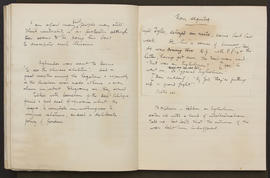
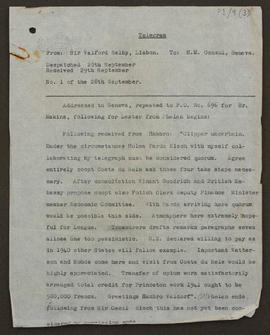
![Letter from [?René Massigli], Consulate General of France in Geneva, Switzerland to Seán Lester, ...](/uploads/r/dublin-city-university-archives/8/d/e/8de968da10a94e773bc0a84668a1ede9b99a515147e41a5dd1f8bc33b4d1ba6b/c1_9_1_3_0004_142.jpg)
![Letter from the Minister of Plenipotentiary [?Gerald Edward O'Kelly de Gallagh et Tycooly], Irish...](/uploads/r/dublin-city-university-archives/9/5/2/952b599029cafab306ad5e8197cc2ade4b9a580faabd01008981e96de07b7493/c1_9_1_4_0001_142.jpg)
